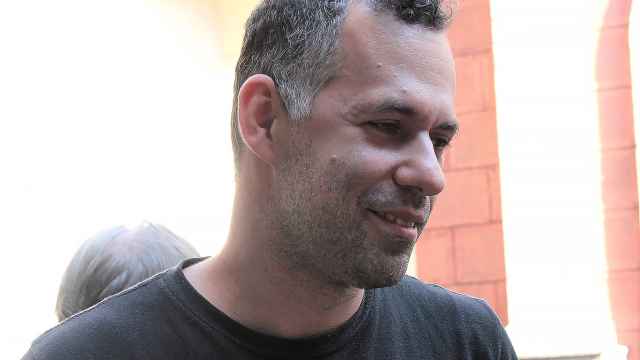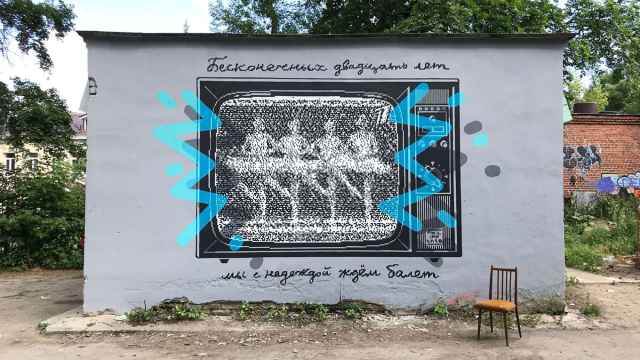HONG KONG — Jiang Wen's latest film has earned rare box-office success in the sensitive genre of Chinese political satire, but theories are flying that it accomplishes much more: eluding strict censorship to criticize China's current government.
Set in the chaotic years after the collapse of imperial rule, "Let the Bullets Fly" tells the story of a Robin Hood-like bandit who kidnaps a con man about to take up the mayorship that he secured through bribes. The bandit swaps identities with his hostage and becomes mayor, only to find himself locked in a battle of wits against a corrupt businessman who made his fortune from tobacco and human trafficking.
Movie critics, however, say there is more than meets the eye. Are the con man and businessman symbols of corrupt Chinese officials who have secretly pocketed the fruits of the country's capitalist-style economic reforms? Is the bandit, who is played by Jiang himself, the brave crusader who dares take on the status quo?
The con man travels in a train compartment pulled by horses. The word "horse" — pronounced "ma" in Chinese — is also used as Chinese shorthand for Marxism. Is the horse-pulled train a metaphor for China: a modernizing country driven by outdated ideology?
Jiang's character says in the movie that he wants to "earn money while standing upright" instead of kowtowing to authority. Is that Jiang the filmmaker speaking, saying he wants to make movies without censoring himself?
Jiang was coy when pressed about the hidden messages at the Hong Kong premiere of "Let the Bullets Fly" late Monday.
Asked by The Associated Press if his latest work was in fact a political criticism, the 48-year-old filmmaker said: "Whatever interpretation is fine. Whatever. You are welcome to think whatever you want to."
He then jokingly chided a reporter for asking the question, saying, "You really lack imagination."
Some fellow filmmakers say Jiang has pulled off an incredible feat by producing a commercial hit backed by the censors without sacrificing his artistic and personal integrity. Chinese directors known for their earlier, critical works — such as Zhang Yimou and Chen Kaige — have come under fire for gravitating toward apolitical historical and kung fu epics that don't offend the government and meet growing market demand.
"Jiang Wen definitely put many of his personal beliefs in the movie. But he also managed a very successful balancing act between art and commerce," said producer Chow Keung. "Seeing Jiang Wen succeed in this attempt is very encouraging to me."
Chow is familiar with the Chinese censorship system, the Hong Kong native having served as the longtime producer for Jia Zhangke, the Golden Lion-winning director known for his films examining the Chinese working class. Jia spent years in the underground before his first movie was allowed to be released in 2004.
A Message from The Moscow Times:
Dear readers,
We are facing unprecedented challenges. Russia's Prosecutor General's Office has designated The Moscow Times as an "undesirable" organization, criminalizing our work and putting our staff at risk of prosecution. This follows our earlier unjust labeling as a "foreign agent."
These actions are direct attempts to silence independent journalism in Russia. The authorities claim our work "discredits the decisions of the Russian leadership." We see things differently: we strive to provide accurate, unbiased reporting on Russia.
We, the journalists of The Moscow Times, refuse to be silenced. But to continue our work, we need your help.
Your support, no matter how small, makes a world of difference. If you can, please support us monthly starting from just $2. It's quick to set up, and every contribution makes a significant impact.
By supporting The Moscow Times, you're defending open, independent journalism in the face of repression. Thank you for standing with us.
Remind me later.





